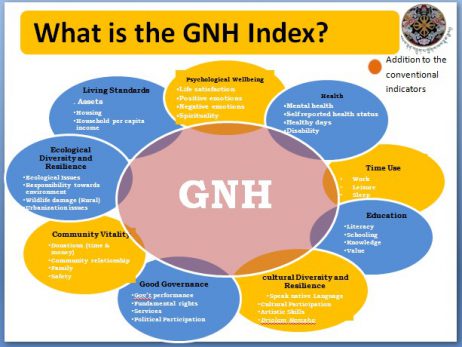GROSS NATIONAL HAPPINESS
The concept of Gross National Happiness (GNH) was promulgated by His Majesty Jigme Singye Wangchuck, the Fourth King of Bhutan in the early 1970s. His Majesty firmly believed that happiness is an indicator, and a sign of progressive development for the Bhutanese people. In addition, Bhutan’s ancient legal code of 1629 stated that, “if the government cannot create happiness for its people, then there is no purpose for government to exist”. The code stressed that Bhutanese
laws must promote happiness for all sentient beings – as a Buddhist nation, it is clear that the cultivation of compassion stemmed from this ancient wisdom.
That the focus was not just the economic progress of Bhutan, but of a flourishing human society living in harmony with nature.
GNH measures the quality of its development in a more holistic way and believes that the beneficial development of human society takes place when material and spiritual development occurs side by side.

THE 4 PILLARS OF GNH
- Good Governance
- Sustainable Socio-economic Development
- Preservation and Promotion of Culture
- Environmental Conservation

The four pillars are further elaborated into nine domains, which articulate the different elements of GNH in detail and form the basis of GNH measurement, indices and screening tools.
- Living standards
- Education Health
- Environment
- Community
- Vitality
- Time-use
- Psychological well-being
- Good Governance
- Cultural resilience and promotion

Plan your trip to Bhutan

